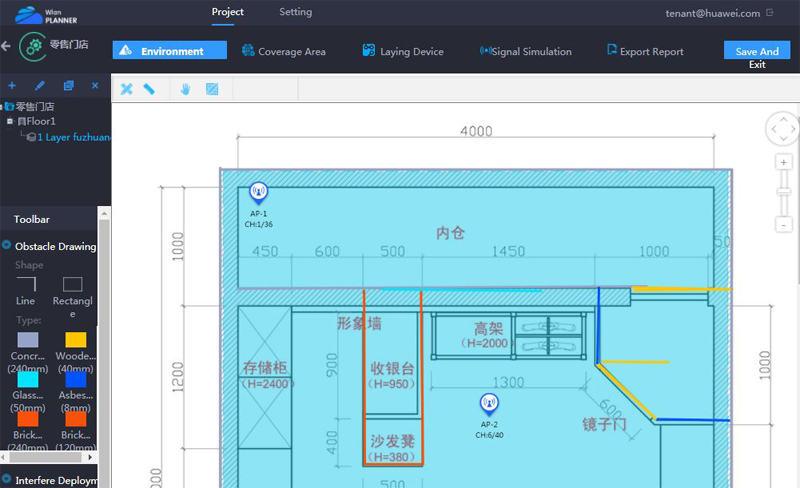Huawei CloudCampus Helps Honda Agency Grow
This site uses cookies. By continuing to browse the site you are agreeing to our use of cookies. Read our privacy policy>
![]()
Produits, solutions et services pour les entreprises
Since its establishment in 2003, Dongfeng Honda Automobile Co., Ltd. has worked hard to become a leading joint venture brand in China’s automotive market. Faced with changes to the competitive landscape in recent years, Dongfeng Honda also faced challenges to its development — should they stand by and hope to be chosen by the market, or innovate to succeed in the market? After careful research, the company decided to gradually switch their market focus to third-tier and fourth-tier cities in China. At the same time, they would improve their operating efficiency through vigorous Information and Communications Technology (ICT)-based development.
However, there was a considerable discrepancy between the reality and their goals. For example:
HQ experts provide remote guidance for network deployment in half a day
Huawei CloudCampus Solution also simplified reconstruction of dealerships’ networks. Dongfeng Honda had planned to reconstruct the networks of seven dealerships across China in one month. These included Tonghua (Jilin), Chengdu (Sichuan), Shenzhen, Taizhou (Zhejiang), and Tianjin. If the traditional network deployment process was followed, the five network engineers from HQ would be exhausted. However, the Huawei solution made a vital difference. The Tianjin dealership network upgrade is a prime example:

Mobile phone scanning for fast deployment
Centralized network O&M means fast troubleshooting
Example 1
After upgrading the network in an older Dongfeng Honda dealership, the network was upgraded to a cloud management network. This significantly improved the network’s operating efficiency. A few days later, a customer told an IT engineer, “I couldn’t connect to the Wi-Fi network while sitting in the waiting room.”
The engineer immediately informed the IT experts at HQ of the problem, who then used the CloudCampus map management system to find that one Access Point (AP) in the dealership was offline. They informed the local engineer of the location of the faulty AP. From discovering to rectifying the fault took only 45 minutes. Previously, solving similar problems would take at least two days, or even require experts from HQ to go on business trips to deal with the issue.
This is just one of the benefits of cloud-managed deployment. After several months since the new network was deployed, network O&M efficiency was significantly improved for Dongfeng Honda, and great savings were made in travel costs.

GIS map-based management of dealerships across China

GIS map of Dongfeng Honda dealerships across China
Cloud platform integrated with augmented reality
It usually takes a few years for Dongfeng Honda’s after-sales engineers to go from beginners to experts. In that case, how can automobile after-sales engineers be helped to grow and quickly perform automobile maintenance? The answer is Augmented Reality (AR).
Example 2
Huawei CloudCampus cooperates with third-party partners to interconnect with an AR platform. Dongfeng Honda experts at HQ do not need to travel, and can guide the maintenance of after-sales engineers at the dealerships in real time. After HQ receives a booking from the dealership, engineers can log in to the cloud platform, select the AR glasses screen, call the dealership, and then give instructions for the maintenance operations.
With the help of Huawei CloudCampus and third-party applications, young engineers in the Dongfeng Honda dealerships are able to quickly take on the duties of more seasoned automobile mechanics. The dealership’s operating efficiency and customer satisfaction have greatly improved.
Huawei actively leads the innovation and development of cloud-based network management, enabling digital transformation for customers in every industry. Huawei’s CloudCampus Solution provides users with the with fast deployment, simplified management, and a variety of applications, that help customers compete in the marketplace.